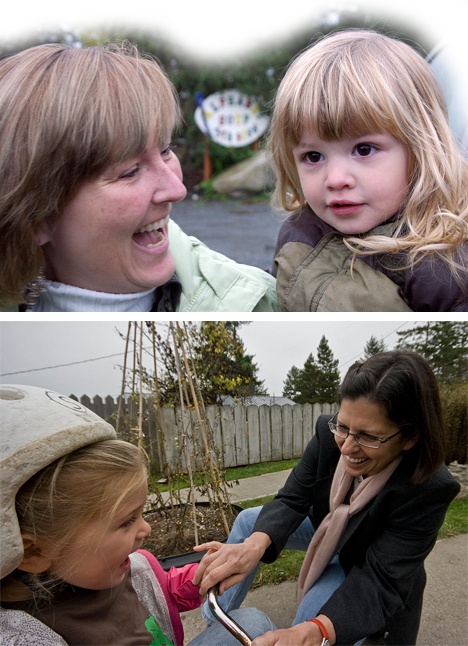Adoptive parents are the first to mention the paperwork. And then the time spent waiting. And then the time spent worrying, while waiting. But parents like Sandy Strehlou caution against forgetting that behind this logistical rollercoaster is, after all, a child.
It is this humanized perspective that November’s Adoption Month hopes to provide. On the 15th, from 6-8 p.m., the San Juan Island Library will host a Q&A time with several adoptive parents, social workers and adoption representatives. Different avenues will be addressed, from private to public to international. Each brings its own story, and its own set of complexities. The variety of adoption methods shows that the road to parenthood is not simple.
“The joke is that you go through labor either way,” says Po Powell, an adoptive parent and San Juan Island resident. Thus, although adoption may bypass the biological strains of birth, the process brings equivalent pain in the form of paperwork and uncertainty.
Encouragement may be found, however, from the substantial local support for adoptive parents. Keri Talbott, who represents the “foster-to-adopt” route, speaks positively of the adoption experience in San Juan. “It is a very caring community,” she says. “The judges, the attorneys, the social workers, everyone is supportive. We want each other to be happy.”
She says each adoption option offers totally different experiences. “This is only my story,” she smiles. “Before we had a child of our own, we wanted to help the community.” She obtained her foster-home license. And then Shean and Tryston arrived. “We couldn’t imagine them going anywhere else,” she says, when describing what led her and her husband to adopt the boys. “They just fit into our family.”
Talbott needs only one word to describe the ensuing adoption process. “Court,” she says. “There is a lot of court.” This is perhaps the most daunting aspect for those intending to adopt.
DSHS social worker Ellen Roberts is kind but firm regarding the legal rigors of adoption.
“It’s very hard,” she says, describing the paperwork and weeks of interviews. “But it’s all about the welfare of the child.” It’s a sentiment echoed by Strehlou, who believes that the screening should be stringent. “When done correctly, the agencies involved are making sure that the child’s particular needs are those that the adopting family is informed of and prepared to be responsible for.”
Roberts says private and public adoptions are closely monitored legally. However, private adoption — which includes international adoption — is a more expensive process. Conversely, the public route reimburses parents for legal costs up to $1,500. Both involve multiple home visits and paperwork. The home visit is an opportunity for the social worker to collate a profile of the family, including biography and personal childhood experiences. This is as much for the family as it is for the social worker, for the visits include discussions as to what the parents want from a child.
“Usually people haven’t gotten farther than ‘a boy’ or ‘a girl,’” Roberts explains. However, parents need to understand that a child up for adoption is irrevocably linked to a difficult past. “Adoption means you’re dealing with a child who comes from adverse circumstances,” Roberts says. The parents need to be aware of this, and to be accordingly prepared. However, Roberts smiles when she recounts how people’s reservations melt upon seeing the photos and profiles of the child that could be theirs.
As Strehlou commented, it is important to bear the actual child in mind. For this reason, adoptive parents are trained to incorporate the child’s past into his or her identity. They are encouraged to make a “life book” that includes photos of the child’s birth parents, to provide a sense of continuity in the child’s identity.
All the preparation, from legalities to mandatory parenting classes, are designed to simply bring the child home. “My husband and I now have an amazing daughter who has enriched our lives beyond what we could understand before becoming parents,” says Strehlou, confirming that it is worth it.
Adoption may seem like a legal maze, but with the support net works now available, it is perfectly navigable. And once through the maze, there is only family ahead.




